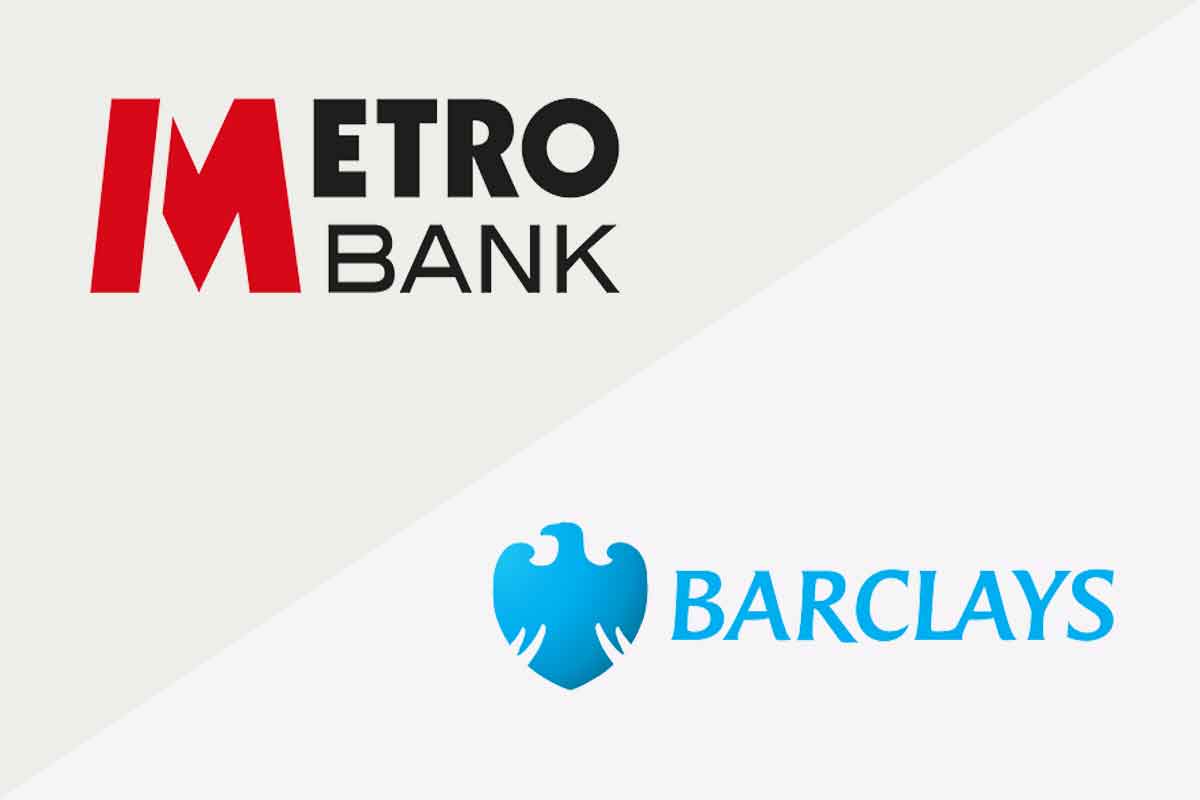When it comes to choosing a bank for your business, two prominent names in the UK banking industry stand out: Metro Bank and Barclays.
Both banks offer a range of business banking services, but they have their own unique features, benefits, and drawbacks.
Featured pro tools
In this article, we will compare Metro Bank vs Barclays, outlining their pros, cons, key differences, costs, and other important considerations, to help you make an informed decision for your business banking needs.
Metro Bank vs Barclays
| Features | Metro Bank | Barclays |
|---|---|---|
| Customer Service | Exceptional customer service with extended opening hours | Mixed customer service reviews, recent improvements |
| Branch Network | Growing network of local branches | Extensive branch network across the UK |
| International Presence | Limited international presence | Strong global reach and dedicated international services |
| Digital Banking | Online and mobile banking platforms | Robust digital banking capabilities |
| Account Opening | Quick and straightforward process | Standard account opening process |
| Product Portfolio | Limited range of business banking products | Wide range of products and services for businesses |
| Business Size | Focused on small and medium-sized enterprises (SMEs) | Serves businesses of all sizes |
| Additional Resources | Various resources and workshops for businesses | Business advice, networking events, industry specialists through “Eagle Labs” initiative |
| Business Loans and Financing | Offers loans and financing options | Comprehensive loan products and terms |
| Reputation and Brand | Relatively new entrant, fresh approach to banking | Established and recognised banking brand |
| Pricing and Account Fees | Transparent fee structure, assess account-specific costs | Account fees and transaction charges may apply |
Please note that this table provides a general overview and it is recommended to conduct further research and consultation with the respective banks to get detailed and up-to-date information on their features, services, and pricing.
Statistics
- Metro Bank:
- As of 2021, Metro Bank had a total of 77 physical branches across the UK, providing local access to their banking services.
- Metro Bank reported a customer satisfaction rating of 86% in the UK Business Banking Survey conducted by the Competition and Markets Authority (CMA) in 2020.
- In 2021, Metro Bank was awarded the “Best Business Bank” at the British Bank Awards, recognising its commitment to customer service and business banking excellence.
- Barclays:
- Barclays operates over 1,500 branches in the UK, providing widespread physical branch accessibility for business customers.
- Barclays reported serving over one million business customers globally as of 2020, highlighting its extensive reach and experience in catering to diverse business needs.
- In 2021, Barclays was ranked as the leading business bank in the UK based on the number of small and medium-sized enterprise (SME) customers.
Pros of Metro Bank
- Customer service: Metro Bank prides itself on exceptional customer service. With longer opening hours and seven-day banking availability, they prioritise convenience and accessibility for their customers.
- Local branches: Metro Bank places a strong emphasis on physical branch presence, providing face-to-face assistance and personalised support to business customers. Their “store” concept ensures a welcoming atmosphere, where you can discuss your business requirements with knowledgeable staff.
- Quick account opening: Metro Bank offers a straightforward account opening process, aiming to provide businesses with immediate access to their banking services. This can be particularly advantageous if you need to get your business up and running quickly.
Cons of Metro Bank
- Limited branch network: While Metro Bank boasts a growing branch network, it is still relatively smaller compared to some of the more established banks. This may limit your access to physical branches, especially if you operate in rural areas.
- Limited international presence: If your business engages in significant international transactions, Metro Bank’s limited international presence may pose challenges. Their services may not be as comprehensive or competitive as larger banks like Barclays in terms of global reach.
Pros of Barclays
- Extensive product portfolio: Barclays offers a wide range of business banking products and services, catering to businesses of all sizes. From business accounts to loans, credit cards, and merchant services, Barclays has a comprehensive suite of offerings to support your business needs.
- Global reach: With a strong international presence, Barclays is well-positioned to assist businesses with their global operations. They provide dedicated international banking solutions, including foreign currency accounts, international payment services, and trade finance options.
- Digital banking capabilities: Barclays has invested heavily in digital banking platforms, providing businesses with convenient online and mobile banking solutions. Their user-friendly interfaces and advanced features enable efficient management of finances on the go.
Cons of Barclays
- Customer service: Barclays has faced criticism in the past regarding their customer service, with some customers reporting difficulties in resolving issues promptly. However, recent efforts to improve their customer service have shown positive results, and this may not be a significant concern for all businesses.
- Account fees: While Barclays offers a comprehensive range of business banking products, some of these may come with account fees or transaction charges. It is important to carefully review the fee structure and consider the potential impact on your business’s cash flow.
Metro Bank vs Barclays – Key differences and considerations
Reputation and brand
Barclays is one of the UK’s oldest and most recognizable banking brands, with a long history of serving businesses and individuals. Metro Bank, on the other hand, is a relatively new entrant, which may be appealing to those seeking a fresh approach to banking.
 |
Wallester Business ✓ Virtual & Physical Cards ✓ No Setup Fees ✓ No Monthly Fees Pricing Trial period Contact |
|
 |
Revolut Business ✓ Business Current Account ✓ Award-Winning Mobile App ✓ Quick & Easy Application Process Pricing Trial period Contact |
|
 |
Tide Business Bank Accounts ✓ Free, Plus, or Pro Account ✓ iOS & Android Mobile App ✓ Upload & Auto-Match Receipts Pricing Trial period Contact |
|
 |
Card One Money ✓ No Credit Checks ✓ Simple Fees ✓ Up to 3.5% Cashback Pricing Trial period Contact |
|
 |
ANNA Money ✓ Apply in 10 minutes ✓ Bookkeeping & Payroll Tools ✓ User-Friendly Mobile App Pricing Trial period Contact |
|
 |
Co-Op Business Banking ✓ Business Current Account ✓ Online, App & High Street Banking ✓ Quick & Easy Application Process Pricing Trial period Contact |
|
 |
HSBC Business Banking ✓ Business Current Account ✓ In-Branch, Online & App Banking ✓ FSCS Protected Pricing Trial period Contact |
|
 |
Metro Business Banking ✓ Business Current Account ✓ High Street Presence ✓ FSCS Protected Pricing Trial period Contact |
|
 |
Mettle Business Banking ✓ Business Bank Account ✓ Online & App ✓ Quick & Easy Application Process Pricing Trial period Contact |
|
 |
Monzo Business Banking ✓ Business Current Account ✓ Dedicated mobile app experience ✓ FSCS Protected Pricing Trial period Contact |
|
 |
Virgin Money ✓ Business M Account ✓ In-Store, Online & App Banking ✓ Insights & Forecasting Platform Pricing Trial period Contact |
Business size and requirements
Consider the size and specific requirements of your business. Metro Bank often focuses on providing services to small and medium-sized enterprises (SMEs), while Barclays caters to businesses of all sizes, including large corporations.
Pricing and account features
Compare the costs associated with different account types and the features offered by each bank. Consider factors such as overdraft facilities, credit terms, interest rates, and transaction limits to determine which bank aligns best with your business needs and financial goals.
Business support and resources
Evaluate the additional support and resources offered by each bank. Barclays, for example, provides business advice, networking events, and access to industry specialists through their “Eagle Labs” initiative. Metro Bank also offers various resources and workshops to help businesses thrive.
Online banking experience
Assess the online banking platforms and mobile apps provided by both banks. Look for features such as easy payment processing, account management tools, and integration with accounting software to streamline your business operations.
Business loans and financing
If your business requires loans or financing options, compare the loan products and terms available from Metro Bank vs Barclays. Consider interest rates, repayment terms, and loan accessibility to find the best fit for your funding needs.
Metro Bank vs Barclays – Costs and pricing
It is essential to review the fee structures and costs associated with business banking services from both Metro Bank and Barclays.
Consider factors such as monthly account fees, transaction charges, overdraft fees, international transaction fees, and any other relevant charges that may impact your business finances.
Compare the costs against the services and benefits provided to ensure you are getting value for money.
Metro Bank vs Barclays – Verdict
In conclusion, both Metro Bank and Barclays offer business banking solutions with their own unique strengths and weaknesses.
Metro Bank excels in customer service and local branch availability, making it a suitable choice for businesses that prioritise face-to-face interactions and convenience.
On the other hand, Barclays offers an extensive range of products, global reach, and advanced digital banking capabilities, making it an attractive option for businesses with international operations and diverse financial needs.
It is advisable to schedule meetings with representatives from both banks to discuss your specific needs and gain a deeper understanding of the services they offer.
Ultimately, making an informed decision based on your business’s unique circumstances will help you establish a strong banking relationship that supports your long-term success.
Metro Bank vs Barclays – FAQ
Metro Bank offers exceptional customer service with longer opening hours and convenient seven-day banking. Their local branches provide personalised support and a welcoming atmosphere. The account opening process is quick, and they focus on serving small and medium-sized enterprises (SMEs).
Barclays has a strong global presence, making it suitable for businesses engaged in international transactions. They offer an extensive product portfolio, including business accounts, loans, credit cards, and merchant services. Barclays also provides advanced digital banking capabilities for convenient financial management.
Metro Bank places importance on local branch presence and offers face-to-face assistance. However, their branch network is still relatively smaller compared to more established banks. Barclays has an extensive branch network across the UK, providing wider accessibility.
Metro Bank offers various resources and workshops to support businesses. Barclays provides business advice, networking events, and access to industry specialists through their “Eagle Labs” initiative, offering additional support beyond traditional banking services.
Yes, both Metro Bank and Barclays offer business loans and financing options. However, it’s advisable to review the specific loan products, interest rates, repayment terms, and accessibility from each bank to determine which aligns best with your business needs.
It’s important to review the fee structures and costs associated with business banking services from both banks. Metro Bank offers transparent fee structures, while Barclays may have account fees and transaction charges. Carefully assess the costs against the services provided to determine the best fit for your business.
Metro Bank primarily focuses on serving small and medium-sized enterprises (SMEs). Barclays caters to businesses of all sizes, including large corporations. Consider the size and specific requirements of your business to determine which bank aligns best with your needs.
Yes, both banks provide digital banking platforms and mobile apps. Metro Bank offers online and mobile banking solutions for convenient account management. Barclays has invested significantly in digital banking capabilities, offering user-friendly interfaces and advanced features for efficient financial management on the go.
Please note that the answers provided here are for general information purposes. It’s recommended to contact the respective banks directly or visit their websites for detailed and up-to-date information tailored to your specific business requirements.

